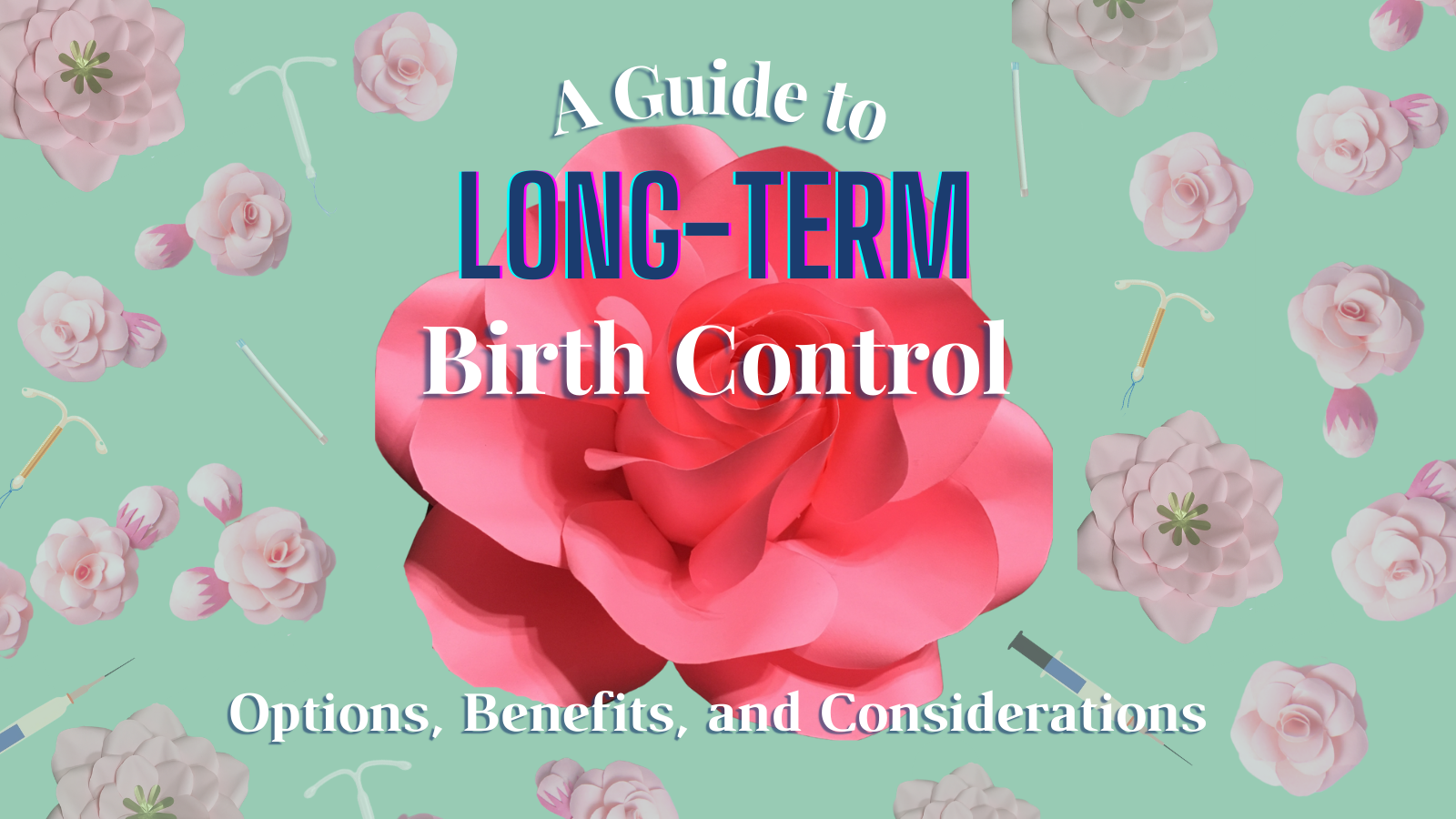When it comes to birth control, convenience and effectiveness are top priorities for many women. Long-term birth control methods can offer a set-it-and-forget-it approach, providing reliable pregnancy prevention for months or even years. Whether you’re looking for a low- maintenance option or something hormone-free, there’s a long-term birth control method that
might be right for you.
What is Long-Term Birth Control?
Long-term birth control, also known as long-acting reversible contraception (LARC), refers to methods that provide protection against pregnancy for an extended period without requiring daily or frequent action on your part. These options are designed to be highly effective and reversible, meaning you can stop using them whenever you’re ready to conceive, or simply don’t need it anymore.
Benefits of Long-Term Birth Control
1. Highly Effective
LARC methods are more than 99% effective, significantly reducing the risk of an unintended pregnancy. Because they don’t rely on daily or monthly use, the chance of human error is minimized.
2. Convenience & Low Maintenance
Unlike birth control pills or condoms, LARC methods don’t require daily attention. Once inserted or administered, they work continuously until removed or replaced.
3. Long-Lasting Protection
Depending on the method, long-term birth control can last anywhere from 3 to 10 years, making it an ideal choice for those who aren’t planning to start a family anytime soon.
4. Reversible
All long-term options are reversible, meaning fertility typically returns soon after discontinuing use.
5. Cost-Effective
While some options have a higher upfront cost, they often save money over time compared to monthly prescriptions for birth control, or frequent contraceptive purchases.
6. Potential Health Benefits
Some hormonal LARC options can reduce heavy periods, menstrual cramps, and symptoms of endometriosis, while others, like the copper IUD, offer hormone-free birth control.
Long-Term Birth Control Options
1. Intrauterine Devices (IUDs)
IUDs are small, T-shaped devices inserted into the uterus by a health care provider. There are two main types:
Hormonal IUDs (e.g., Mirena, Kyleena, Skyla, Liletta)
- Lasts 3 to 8 years, depending on the type
- Releases a hormone to prevent pregnancy
- May reduce or eliminate periods over time
Non-Hormonal Copper IUD (Paragard)
- Lasts up to 10 years
- Uses copper to create an environment that prevents sperm from fertilizing an egg
- Hormone-free option, but may cause heavier periods initially
2. Birth Control Implant (Nexplanon)
A small, flexible rod inserted by our team under the skin of the upper arm.
- Releases progestin and lasts up to 3 to 5 years
- Highly effective and discreet
- May cause irregular periods initially
3. Birth Control Shot (Depo-Provera)
An injection of progestin that prevents ovulation.
- Given every three months
- Can lead to lighter or no periods
- Requires commitment to getting injections on schedule
Permanent Birth Control
Bilateral Salpingectomy (“Getting Your Tubes Tied”)
For those who are certain they don’t want children, permanent birth control (sterilization) is an option.
- A surgical procedure that blocks or cuts the fallopian tubes
- Highly effective and permanent
- Interesting note: An up-to-date practice is to remove the fallopian tubes, which decreases risk for ovarian cancer
Vasectomy (for male partners)
- A quick outpatient procedure that cuts or seals the vas deferens
- Does not affect sexual function but is considered permanent
Choosing the Right Long-term Birth Control
The best method for you depends on factors like your general health, medical history, lifestyle, desire for hormonal vs. non-hormonal options, and long-term family planning goals. Consulting with our team can help you weigh the pros and cons of each method based on your individual needs.
Long-term birth control methods provide peace of mind, allowing you to focus on your life without the daily worry of contraception. Whether you choose an IUD, an implant, or another method, these options offer highly effective, low-maintenance solutions to prevent pregnancy while keeping future choices open.
Our team is here to answer your questions and help you make a decision about a LARC that is a fit for you.
Reviewed and approved: Drs. Taryn McEvoy and Jenny Zhang, Premier Women’s Health – Oakdale OBGYN, March 2025

